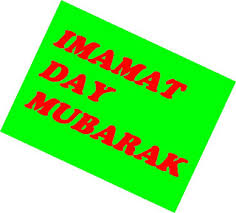Fifty-six years ago, on the 11th of July 1957, Mawlana Hazar Imam succeeded his grandfather, Mawlana Sultan Mahomed Shah, as the 49th hereditary Imam of the Shia Ismaili Muslims.
In keeping with the 1 400-year old tradition of Muslim leadership, covering all interpretations of Islam, Mawlana Hazar Imam has guided his murids in matters of faith and worked tirelessly to improve the quality and security of their lives. This latter concern extends not only to the Ismailis but all those who share their lives – locally, nationally and internationally.
Mawlana Hazar Imam's vision, as well as the Imamat's institutional capacity to catalyse human development, have been widely recognised by governments, international organisations and civil society institutions. Today, the Imamat’s privileged relationships with many of these enhance its capacity to contribute to human development on a global scale.
Imamat Day is an occasion to reaffirm our allegiance and gratitude to Mawlana Hazar Imam for his benevolence and guidance, and to renew our commitment to the ethics of the faith. On the occasion of the 56th anniversary of Mawlana Hazar Imam’s accession to the Ismaili Imamat, TheIsmaili.org extends warmest Imamat Day wishes to all Ismaili Muslims around the world.

Comments
Post a Comment